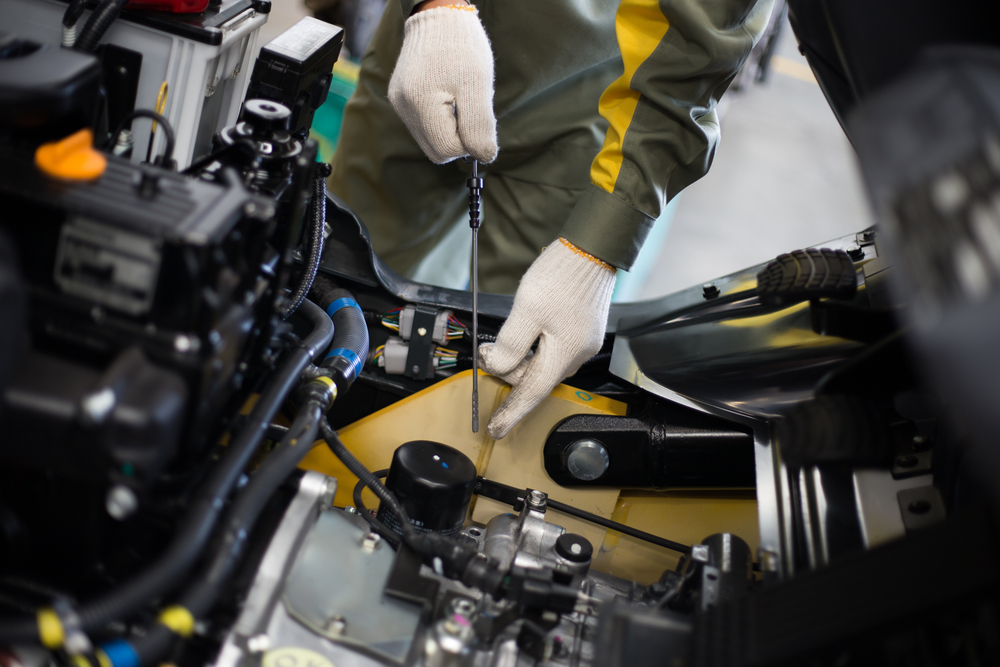
5 Common Forklift Problems and How to Fix Them
July 8, 2024 1:50 pm Leave your thoughtsOperating a forklift requires expertise not only in handling loads but also in maintaining and troubleshooting the machine itself. Like any mechanical equipment, forklifts are prone to issues that can disrupt productivity and safety. Knowing the common problems and how to fix them is crucial for keeping operations smooth and minimizing downtime. Here, we delve into five prevalent forklift problems and practical solutions to resolve them effectively.
1. Battery Issues
Symptoms:
One of the most frequent problems with electric forklifts is battery-related issues. Signs include the forklift losing power unexpectedly, difficulty starting, or shortened operational time on a single charge.
Solutions:
- Check Battery Charge: Ensure the battery is adequately charged before use. Implement a routine charging schedule based on manufacturer guidelines.
- Inspect Battery Connections: Clean and tighten all battery connections to ensure a secure electrical connection.
- Monitor Water Levels (if applicable): If your forklift battery requires water, check and refill with distilled water as necessary.
- Replace Old Batteries: If performance issues persist despite maintenance, consider replacing the battery with a new one compatible with your forklift model.
2. Hydraulic Leaks
Symptoms:
Hydraulic leaks can manifest as visible fluid under the forklift or a noticeable drop in hydraulic fluid levels over time. Leaks often lead to reduced lifting capacity and operational inefficiency.
Solutions:
- Locate the Leak: Inspect the hydraulic system carefully to identify the source of the leak. Common areas include hoses, seals, and connectors.
- Replace Seals and Hoses: If the leak stems from damaged seals or hoses, replace them promptly with manufacturer-approved parts.
- Check Fluid Levels: Regularly check hydraulic fluid levels and top up as needed with the recommended fluid type.
- Perform Preventive Maintenance: Implement a preventive maintenance schedule to inspect hydraulic components routinely and prevent future leaks.
3. Engine Problems
Symptoms:
Internal combustion forklifts may experience engine-related issues such as rough idling, difficulty starting, excessive smoke emission, or sudden loss of power.
Solutions:
- Inspect Fuel System: Check for clogged filters or fuel lines and replace them if necessary.
- Spark Plugs and Ignition System: Clean or replace spark plugs and inspect the ignition system for any faults.
- Engine Oil and Coolant Levels: Ensure adequate levels of engine oil and coolant to maintain proper engine function.
- Professional Inspection: For complex issues, consult a qualified mechanic to diagnose and repair engine problems effectively.
4. Braking Problems
Symptoms:
Braking problems can present as reduced braking effectiveness, squealing noises when braking, or brakes that feel soft or unresponsive.
Solutions:
- Inspect Brake Pads and Discs: Check the condition of brake pads and discs for wear and tear. Replace them if they are worn out.
- Brake Fluid Check: Ensure brake fluid levels are adequate and replace old fluid if necessary.
- Adjust Brake System: Adjust brake cables or hydraulic systems as per manufacturer specifications to restore optimal braking performance.
- Test Brakes: Conduct regular brake tests to verify effectiveness and address any issues promptly.
5. Steering Issues
Symptoms:
Steering problems may include difficulty turning, unusual noises when steering, or uneven tire wear.
Solutions:
- Check Tire Pressure and Condition: Ensure tires are properly inflated and examine them for signs of damage or wear.
- Inspect Steering System: Look for loose or worn steering components such as tie rods or steering linkage.
- Alignment Adjustment: If steering is uneven, check and adjust wheel alignment to manufacturer specifications.
- Grease Steering Mechanism: Lubricate steering components regularly to prevent friction and maintain smooth operation.
Conclusion
Maintaining a forklift involves proactive care and timely troubleshooting to address common issues effectively. By understanding these common problems—such as battery issues, hydraulic leaks, engine problems, braking issues, and steering concerns—you can implement the appropriate solutions to keep your forklift in optimal condition. Regular inspections, preventive maintenance, and prompt repairs not only enhance forklift performance but also contribute to workplace safety and productivity. By staying proactive, you ensure that your forklifts operate reliably and efficiently, supporting smooth operations in warehouse and industrial settings.
Need Heavy Equipment Experts in Abilene, TX?
Categorised in: Forklift Maintenance
This post was written by admin
